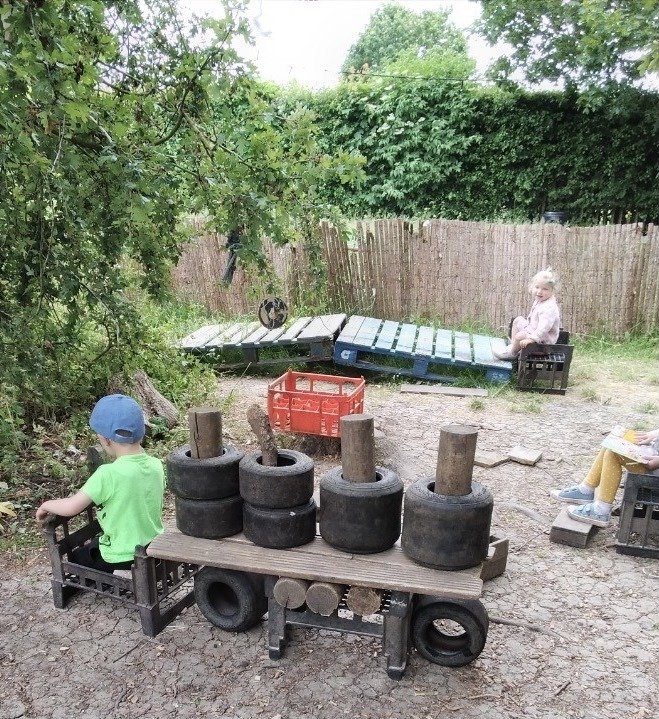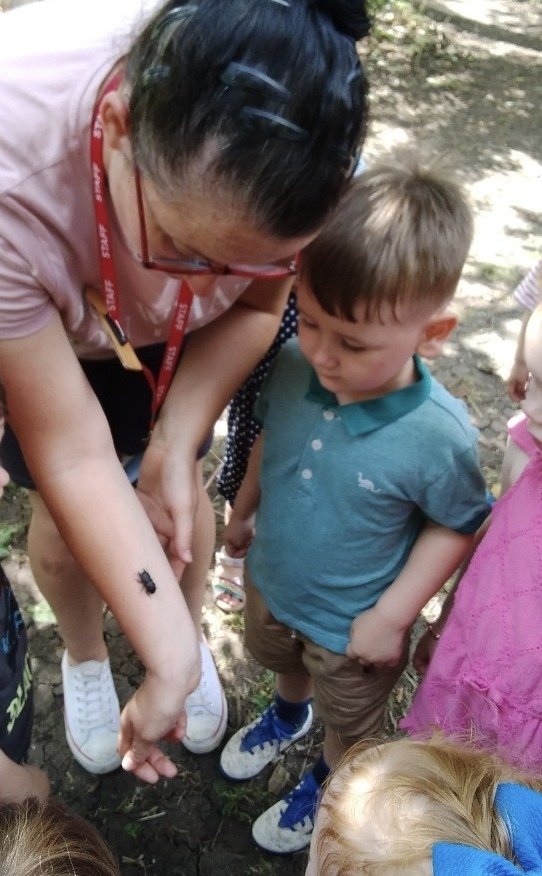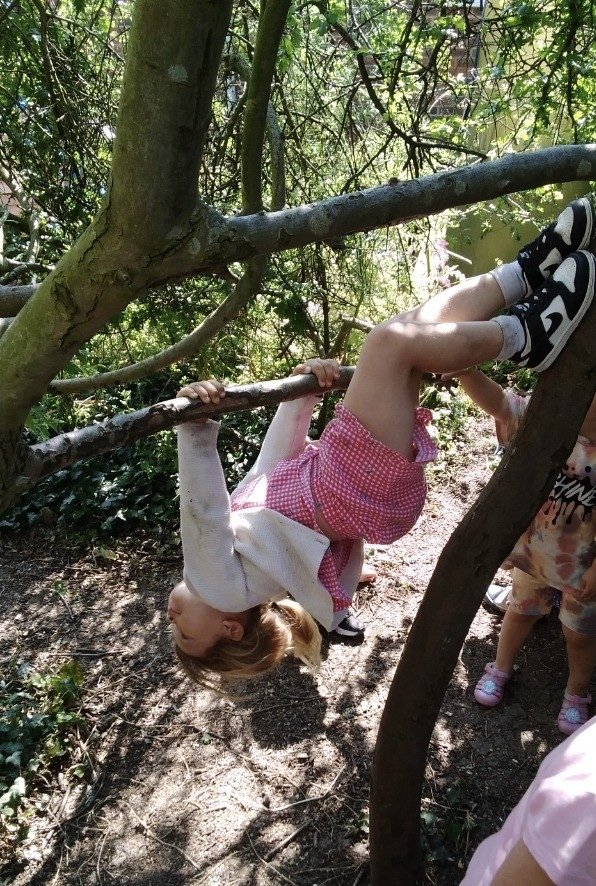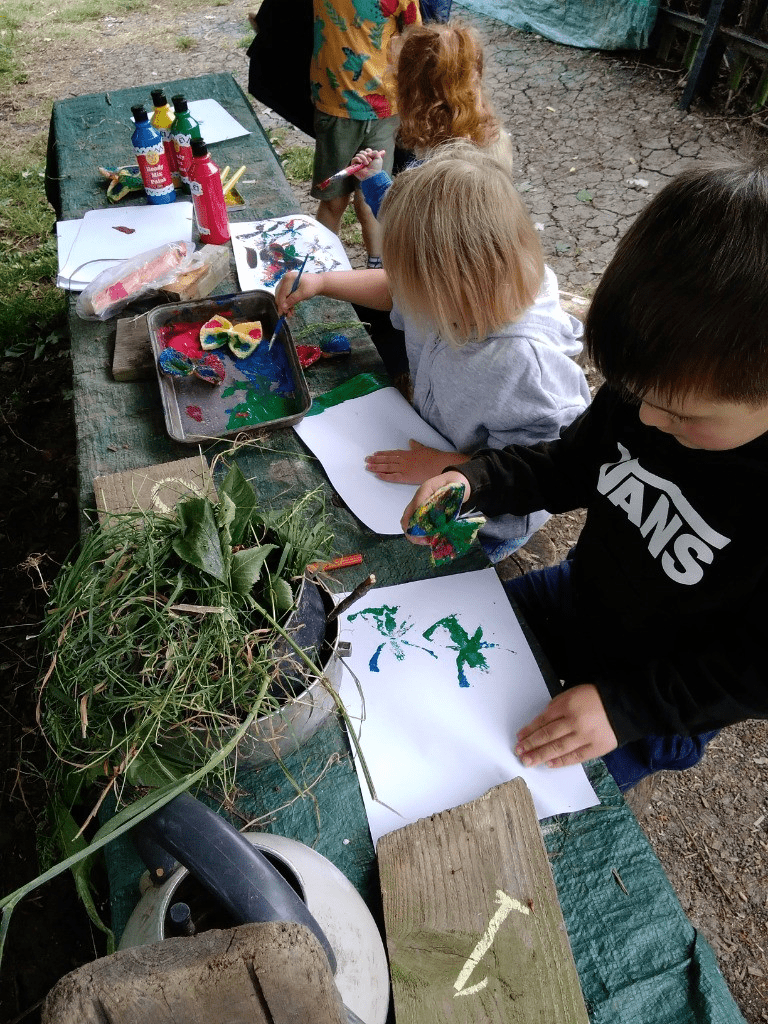We are so lucky to have a little wooded area in which to have our daily “forest adventures”. This is located at the top of the school playground, so we do not even have to leave the school grounds to access it. We spend much of our time there, particularly during

Encouraging physical fitness from an early age is more important than ever in these days of screens and online gaming. Running, jumping and climbing builds core strength and muscle development, aids bone density and improves posture to keep our little people strong. Believe it or not, gaining control of the larger muscles is necessary before children can even begin to start developing the fine motor skills needed to write.
On top of which ,it’s been proved that just ten minutes of physical activity can have a significant impact on the psychological and emotional wellbeing of children - boosting self-esteem, lowering anxiety, and reducing stress. Fresh air, exposure to natural light and being near the earth increases serotonin levels. Serotonin is a mood stabilising hormone which is responsible for well-being and happiness. So, being outside really does help regulate mental health too.

Don't worry if your child is toilet/potty training, because we have our own portable toilet up there, complete with privacy tent and full hygiene access, so they will not be 'caught out' in an emergency!
Your child will more likely than not come home from Clocktower a lot grubbier than when they arrived but take a look at that smile, see how relaxed they are and fingers crossed, appreciate a good nights sleep!
The following blog was supplied by YPO - a supporter of the Alliance's National Week of Play (13-19 June 2022):
Now more than ever, we must recognise the importance of outdoor play when it comes to the impact it has on
early years development.
Not only does it act as an integral part of a child's learning opportunities, but it can help massively benefit children's mental and physical health and wellbeing.
Mental health issues among children are rapidly on the rise, so it's important for us to find ways to combat this, ensuring that mental wellbeing is at the forefront of children’s learning, through early years and beyond.
Spending time outdoors can have a positive impact on both mental and physical health at any age,
so it's important that we encourage it from a young age.
Encouraging essential physical fitness
Spending time outdoors daily helps keep children fit and healthy physically. Encouraging children to run, jump, climb and chase develops good physical fitness, as well as helping aid in critical development such as stability, bone density, and muscle development. Staying healthy from a young age can help prevent future problems too. To encourage this, create games and activities to get everyone involved.
Provides a break from the everyday
Time spent in nature provides children with the opportunity to switch off and give their brains a well-earned break from the demands of everyday life. Allowing children playtime helps them burn off energy and improve their ability to concentrate, helping them to excel in the classroom as they get older. The outdoors presents a different and exciting environment where children can have fun, letting imaginations run wild and offer an escape from reality.
Helps to reduce anxiety and stress
Exercise releases chemicals helping us regulate our mental health. Participation in just ten minutes of physical activity can have a significant impact on the psychological and emotional wellbeing of children - boosting self-esteem, lowering anxiety, and reducing stress. The outdoors is the perfect place to encourage and engage children in physical activity. Providing different equipment and making it easily accessible enables physical activity and the benefits it brings whilst improving physical development too.
Aids in topping up vitamin D
This important vitamin is crucial for child development, helping to maintain a healthy body and mind, and one of the best natural sources is the sun. Vitamin D helps our bodies to regulate calcium and phosphate, keeping bones, muscles, and teeth healthy. Vitamin D increases the production of serotonin, essential for stabilising our mood and is linked to happiness. Serotonin affects our brains and nervous system, aiding cognitive development, improving memory and concentration.
Supports emotional and social skills
Playing outside offers children a chance to explore and process feelings in a situation that they can control. The increased space lends itself well to group activities providing opportunities to practice empathy and develop an understanding of others. Outside is the perfect place for children to make friends, helping develop their social and emotional skills, by engaging in group activities and problem-solving.
Facilitates discovering the natural environment
Having an outside area allowing children to connect with nature and explore different types of plants can have a calming effect. Spending time outdoors allows children to explore their natural environment and the world around them. Creating a sensory garden featuring plants known for their calming properties such as lavender or rosemary provides a quiet and safe space for children to time-out, explore the environment around them, and discover sensory information, such as scents and sounds.











